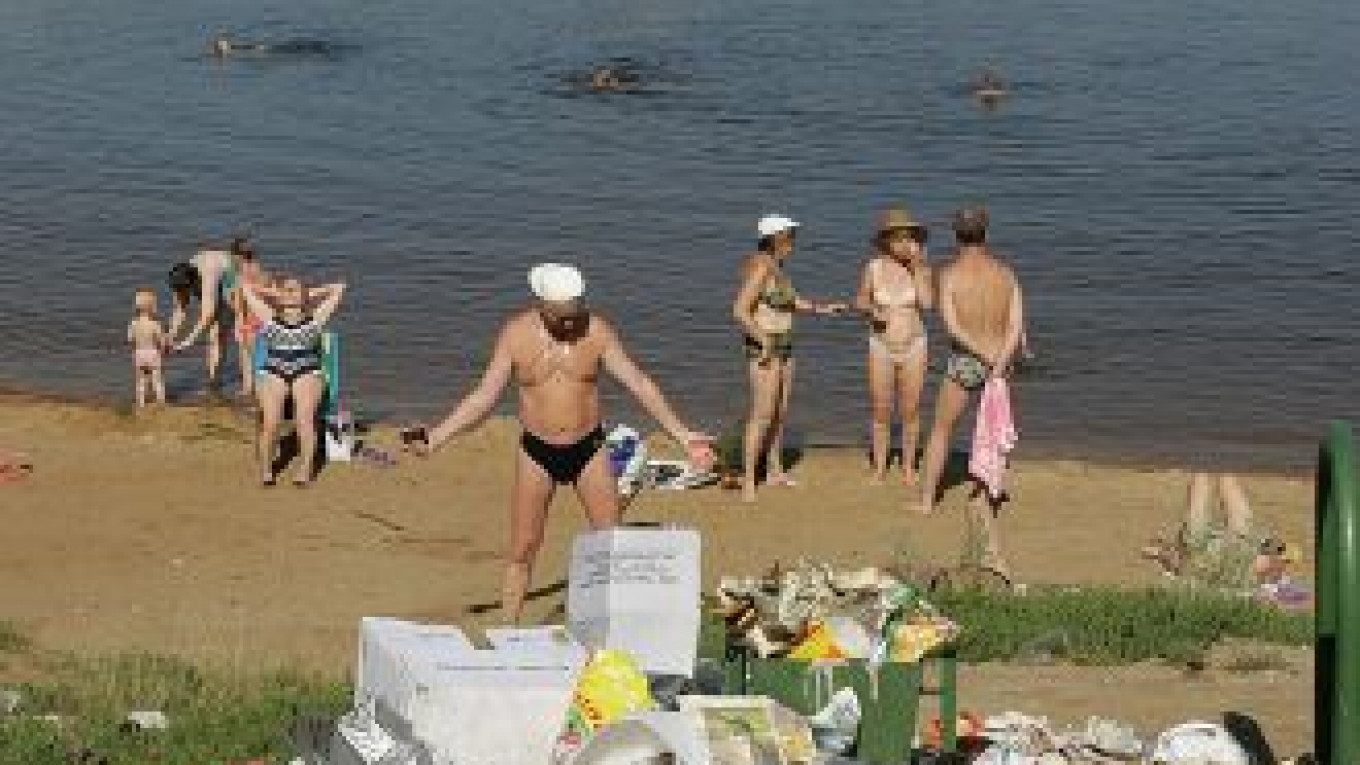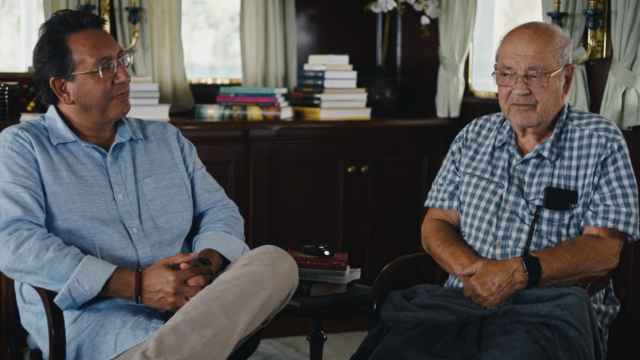The Public Chamber has opened an ecological hotline in the hope that complaints by the public will have a positive effect on businesses and the government.
It is hot in the room where the environmental hotline calls are answered — very hot, just like all of Moscow.
A young man calls to offer his help in extinguishing the forest wildfires. Irina Grigoryevna phones from the city of Tuapse to complain about the construction of a factory to process and store fertilizer on the coast of the Black Sea despite a lack of the right permits.
The Public Chamber opened the phone line after a sharp increase in the amount of complaints regarding ecological violations. They now receive on average 60,000 complaints a year.
One case in particular prompted the hotline. The Public Chamber faced off against LG Electronics’ assembly line in the Moscow region after the chamber discovered that the company, “which had received a permit for ‘assembly and packaging,’ was actually in the process of building a plant for chemical production,” said Alina Radchenko, head of the Public Chamber.
In such cases, companies simply shut down when an inspection occurs, so that they can pass and then restart later, the chamber discovered.
With the complaints, the chamber has noticed a dangerous trend: While once it was an occasional business that was caught illegally failing to install filters to reduce emissions, today it is almost the standard practice, backed by both businesses and local bureaucrats.
“This is how entire cities are poisoned!” Radchenko said.
Another problem is getting somebody to pay attention. In Tuapse, residents have protested against the plant, but local media do not write about it.
“Local newspapers are often controlled by the authorities and simply hush up environmental problems,” Radchenko said.
The hotline is the first of the chamber’s initiatives aimed at improving civil society’s involvement in environmental preservation. The ultimate goal is to implement real ecological modernization of companies and to foster responsibility among businessmen.
The chamber has created a team of volunteers and a pool of experts who will analyze information gathered from the public. In response to complaints, they will go to meet with residents, provide first-hand assessments of situations and decide how to proceed.
The hotline reflects a real interest in ecological issues, said Yevgeny Schwartz, director of conservation policy at the World Wildlife Fund.
“Part of the population has decided that to stand up for their rights to a green forest and clean air, they need to force the powers that be to listen to them,” Schwartz said. “Or sell their three-room flat and move to Spain or Australia,” he added.
Nevertheless, Schwartz remained skeptical about the effectiveness of the hotline, insisting that change would have to come from the top, but added that it represented a new movement.
“A certain level of society has been formed that is prepared to make a conscious choice: a second car for the wife or the chance to see dancing swallows,” Schwartz said. “It is those who fought for the Khimki forest and understand that the cost of their flats depends on what they can see through the window. For them, ecological well-being is just as important as economic well-being.”
Public Chamber line: 8 (800) 700-8800.
A Message from The Moscow Times:
Dear readers,
We are facing unprecedented challenges. Russia's Prosecutor General's Office has designated The Moscow Times as an "undesirable" organization, criminalizing our work and putting our staff at risk of prosecution. This follows our earlier unjust labeling as a "foreign agent."
These actions are direct attempts to silence independent journalism in Russia. The authorities claim our work "discredits the decisions of the Russian leadership." We see things differently: we strive to provide accurate, unbiased reporting on Russia.
We, the journalists of The Moscow Times, refuse to be silenced. But to continue our work, we need your help.
Your support, no matter how small, makes a world of difference. If you can, please support us monthly starting from just $2. It's quick to set up, and every contribution makes a significant impact.
By supporting The Moscow Times, you're defending open, independent journalism in the face of repression. Thank you for standing with us.
Remind me later.






